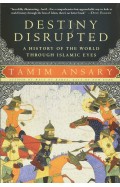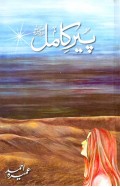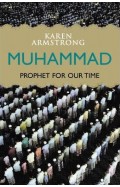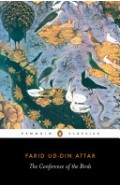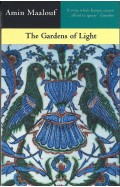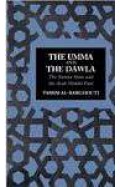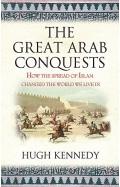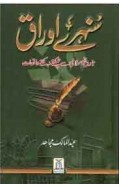- Home
- Books
- Categories
- Non Fiction
- Religion & Spirituality
- Islamic Empires: Fifteen Cities that Define a Civilization
Islamic Empires: Fifteen Cities that Define a Civilization
By: Justin Marozzi
-
Rs 3,495.00
Due to constant currency fluctuation, prices are subject to change with or without notice.
Islamic civilization was once the envy of the world. From a succession of glittering, cosmopolitan capitals, Islamic empires lorded it over the Middle East, North Africa, Central Asia and swathes of the Indian subcontinent. For centuries the caliphate was both ascendant on the battlefield and triumphant in the battle of ideas, its cities unrivalled powerhouses of artistic grandeur, commercial power, spiritual sanctity and forward-looking thinking.
Islamic Empires is a history of this rich and diverse civilization told through its greatest cities over fifteen centuries, from the beginnings of Islam in Mecca in the seventh century to the astonishing rise of Doha in the twenty-first.
It dwells on the most remarkable dynasties ever to lead the Muslim world - the Abbasids of Baghdad, the Umayyads of Damascus and Cordoba, the Merinids of Fez, the Ottomans of Istanbul, the Mughals of India and the Safavids of Isfahan - and some of the most charismatic leaders in Muslim history, from Saladin in Cairo and mighty Tamerlane of Samarkand to the poet-prince Babur in his mountain kingdom of Kabul and the irrepressible Maktoum dynasty of Dubai. It focuses on these fifteen cities at some of the defining moments in Islamic history: from the Prophet Mohammed receiving his divine revelations in Mecca and the First Crusade of 1099 to the conquest of Constantinople in 1453 and the phenomenal creation of the merchant republic of Beirut in the nineteenth century.
Islamic civilization was once the envy of the world. From a succession of glittering, cosmopolitan capitals, Islamic empires lorded it over the Middle East, North Africa, Central Asia and swathes of the Indian subcontinent. For centuries the caliphate was both ascendant on the battlefield and triumphant in the battle of ideas, its cities unrivalled powerhouses of artistic grandeur, commercial power, spiritual sanctity and forward-looking thinking.
Islamic Empires is a history of this rich and diverse civilization told through its greatest cities over fifteen centuries, from the beginnings of Islam in Mecca in the seventh century to the astonishing rise of Doha in the twenty-first.
It dwells on the most remarkable dynasties ever to lead the Muslim world - the Abbasids of Baghdad, the Umayyads of Damascus and Cordoba, the Merinids of Fez, the Ottomans of Istanbul, the Mughals of India and the Safavids of Isfahan - and some of the most charismatic leaders in Muslim history, from Saladin in Cairo and mighty Tamerlane of Samarkand to the poet-prince Babur in his mountain kingdom of Kabul and the irrepressible Maktoum dynasty of Dubai. It focuses on these fifteen cities at some of the defining moments in Islamic history: from the Prophet Mohammed receiving his divine revelations in Mecca and the First Crusade of 1099 to the conquest of Constantinople in 1453 and the phenomenal creation of the merchant republic of Beirut in the nineteenth century.
Islamic Empires: Fifteen Cities that Define a Civilization
By: Justin Marozzi
Rs 3,495.00 Ex Tax :Rs 3,495.00
Zubin Mehta: A Musical Journey (An Authorized Biography)
By: VOID - Bakhtiar K. Dadabhoy
Rs 840.00 Rs 1,050.00 Ex Tax :Rs 840.00
Destiny Disrupted A History Of The World Through Islamic Eyes
By: Tamim Ansary
Rs 5,595.00 Ex Tax :Rs 5,595.00
Secrets Of Divine Love: A Spiritual Journey Into The Heart Of Islam
By: A. Helwa
Rs 1,299.00 Ex Tax :Rs 1,299.00
1001 Inventions The Enduring Legacy Of Muslim Civilization
By: Salim T S Al-Hassani
Rs 7,695.00 Ex Tax :Rs 7,695.00
Goodnight Stories from the Life of Sahabah PBUH
By: Saniyasnain Khan
Rs 4,595.00 Ex Tax :Rs 4,595.00
Destiny Disrupted A History Of The World Through Islamic Eyes
By: Tamim Ansary
Rs 5,595.00 Ex Tax :Rs 5,595.00
Secrets Of Divine Love: A Spiritual Journey Into The Heart Of Islam
By: A. Helwa
Rs 1,299.00 Ex Tax :Rs 1,299.00
No recently viewed books available at the moment.
Zubin Mehta: A Musical Journey (An Authorized Biography)
By: VOID - Bakhtiar K. Dadabhoy
Rs 840.00 Rs 1,050.00 Ex Tax :Rs 840.00
Islamic Empires: Fifteen Cities that Define a Civilization
By: Justin Marozzi
Rs 3,495.00 Ex Tax :Rs 3,495.00
Destiny Disrupted A History Of The World Through Islamic Eyes
By: Tamim Ansary
Rs 5,595.00 Ex Tax :Rs 5,595.00
The Sufi Path of Love: The Spiritual Teachings of Rumi (Suny Series in Islamic Spirituality) (Suny Series, Islamic Spirituality)
By: William C. Chittick
Rs 1,250.00 Ex Tax :Rs 1,250.00
Secrets Of Divine Love: A Spiritual Journey Into The Heart Of Islam
By: A. Helwa
Rs 1,299.00 Ex Tax :Rs 1,299.00












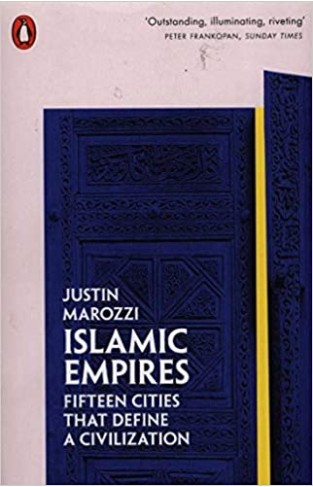
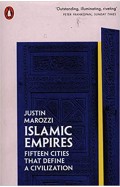


-120x187.jpg?q6)






